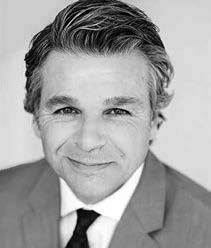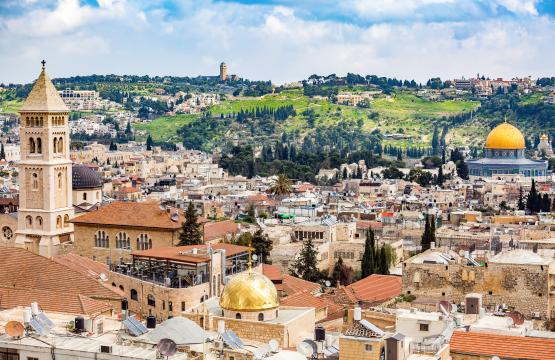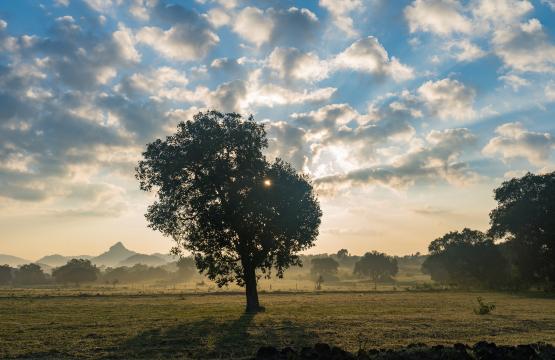 As a pastor of a large congregation, I am accustomed to a highly social, fast-paced lifestyle. But when the COVID-19 virus forced the world to a screeching halt last year, I was reminded, in a very sobering way, of the importance of putting family first and of the need for rest.
As a pastor of a large congregation, I am accustomed to a highly social, fast-paced lifestyle. But when the COVID-19 virus forced the world to a screeching halt last year, I was reminded, in a very sobering way, of the importance of putting family first and of the need for rest.
The importance of observing the Sabbath (Shabbat), a practice my Jewish friends have taught me to embrace, was once again impressed upon me.
We read in Genesis 2:2-3, “And on the seventh day God finished His work that He had done, and He rested on the seventh day from all His work that He had done. So God blessed the seventh day and made it holy, because on it God rested from all His work that He had done in creation” (ESV).
We know from Scripture that God never tires. So why would He rest?
Because He loves His children. With the creation of the Sabbath, God set an example for us to follow.
Throughout the book of Exodus, we see God command the children of Israel to keep the Sabbath in remembrance of their miraculous deliverance from 400 years of slavery in Egypt. God said to Moses in Exodus 31:13, “You are to speak to the people of Israel and say, ‘Above all you shall keep my Sabbaths, for this is a sign between Me and you throughout your generations, that you may know that I, the Lord, sanctify you.’”
The Sabbath serves as a covenant between God and His children, the blessings of which extend to both Jews and Gentiles as a result of Jesus’ redemptive work on the cross and His resurrection. The Sabbath is a day for rest and remembrance, for communion with God and with each other. It is a day for restoration. Here are a few practical ways we can make the Sabbath a part of our lives:
We can incorporate it into our routines. Letting go of our “to do” lists and slowing down does not come naturally for us, myself included. Many of us, especially in America, are hard-wired for a full schedule. Yet we overlook the simple truth that rest is actually what refuels us. If we are intentional about taking one day out of our week to set our work aside, unplug from technology and spend quality time with our families and friends, we’re much better prepared for what lies ahead of us, as well as much more apt to receive true rest. Just like a morning quiet time, going to worship and reading Scripture, the blessings of the Sabbath will begin to take root in our lives when we make it a priority.
We can teach it to our children. Our children will one day lead and care for the world. They inherit our decisions. Consequently, we must prepare them for the future by teaching them values that will guide them into a healthy, God-glorifying lifestyle – teaching them to observe the Sabbath is a part of that. By observing the Sabbath, we will show our children how to seek the Lord and how to be grateful for His provisions, how to put their family first and how to care for their mental, emotional, spiritual and physical health.
We can commit to observing the Sabbath now and throughout the new year. A recent report from the Pew Research Center indicated that 86 percent of Americans surveyed felt there are lessons to be learned from the COVID-19 pandemic. One of those lessons? The importance of valuing our families and relationships. One respondent said, “the importance of family and friend interactions should not be overlooked. Internet and electronic interactions cannot replace or fulfill human need for interactions face to face.” So with a new year upon us – and with a year behind us that reminded us how much we truly need valuable relationships in our lives – it may be the perfect time to start a new habit or a new tradition. Perhaps set aside a period of the day for limited technology, intentionally planning to resist the constant urge to check our phones and our work email. Perhaps invite a family member you rarely see to join for family dinner on Sunday.
Making the Sabbath a habit even serves as a testimony of our faith to the world. Others will see it’s lasting effects in us and begin to wonder with curiosity what sets us apart.
The past year has been one of intense suffering for millions of people. Without meaningful connections in our lives to God and to others, we would all be lost. These hard-learned lessons, to put family first and to rest, are ones I will carry into this new year and the years to come.
Our world is in desperate need of restoration, and that restoration begins in our own hearts and in our homes. That restoration begins with the Sabbath.






